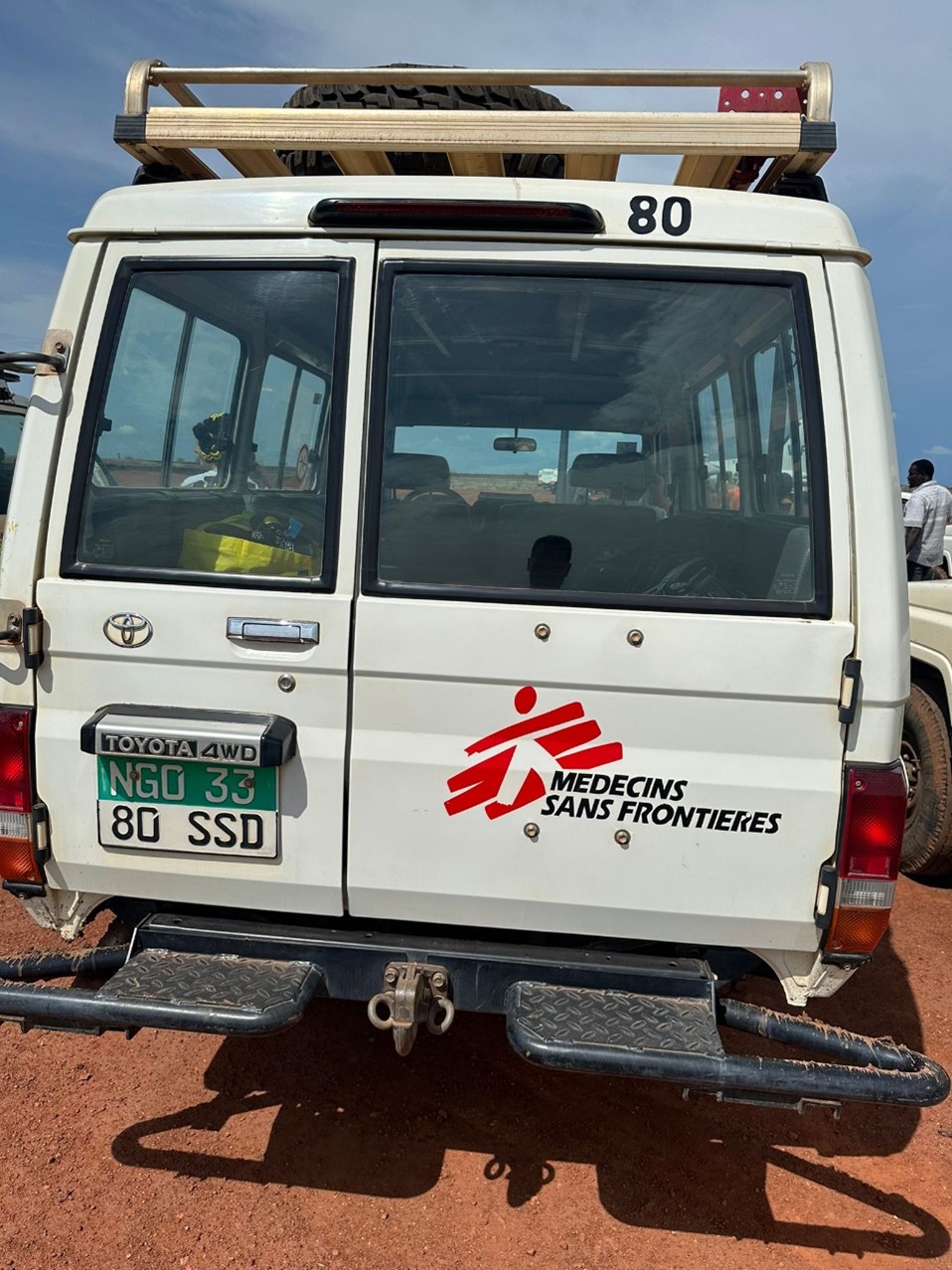Meeting Fellow Countrymen in a Foreign Land

I had never imagined that in South Sudan, a place so remote from where I’m from, I would encounter a patient from my own country.
During a surgery today, I received an urgent call from the emergency room, informing me about a trauma patient. As I rushed to the scene, I was surprised to find a group of Chinese in red work uniforms speaking Mandarin. One among them laid on the bed, moaning in agony.
This was the first time I came across a patient from my home country during all eight of my MSF assignments!
I was a bit stunned that I forgot to change the language and kept speaking English like I used to here. Knowing the workers struggled to understand English, I switched to Mandarin and we managed to communicate despite my thick Cantonese accent.
Upon further inquiry, I discovered that they were from mainland China and had come to South Sudan to work for a company. Coincidentally, their work site was near our MSF hospital. That day the patient fell from a work platform, approximately four meters high, resulting in injuries to his left chest and leg, causing immense pain.
Without delay, I examined him and noted bruises on his left chest, indicating a possible rib fracture. Fortunately, there were no signs of pneumothorax (collapsed lung). His left thigh swelled and displayed signs of a fractured femur, albeit without any visible wounds. It was a closed femur fracture. To confirm the absence of internal bleeding in the abdominal cavity, I performed a FAST (Focused Assessment with Sonography for Trauma) scan, possibility of other fatal conditions like hemopericardium, pneumothorax or haemothorax were also ruled out.
Given the lack of X-ray equipment, I resorted to ultrasound examination, which unveiled a clearly displaced fracture in his thigh bone.
Once the injuries were diagnosed, a treatment plan was needed.
Under ideal circumstances in developed countries, such an injury would require an intramedullary nailing. However, due to the limitation of our operating theatre in terms of aseptic standards and surgical resources, we were unable to provide that option.
Since the company that he was working for was fine with arranging an evacuation for him, and his relatively stable overall condition, I suggested emergency medical transport by plane to Juba, the capital city of South Sudan, or even back to his home country for further treatment.
In my somewhat broken Mandarin, I thoroughly analysed the pros and cons of various options with them, and they agreed to the emergency medical transport proposal.
However, as the patient's fractured thigh was unstable, I had to create a plaster backboard as a temporary fixation measure to reduce internal bleeding and pain.
In the operating theatre, we administered sedatives to the patient and proceeded to closed reduction and fix the plaster board. It was no easy task, given that the patient weighed over 100 kilograms! Four strong men including myself had to exert all of our strengths to complete it. The procedure and painkilling drugs provided significant relief to the patient.
On the same evening, the patient's colleagues arranged transportation to collect him from the hospital. They were prepared to fly to Juba early next morning. Before bidding farewell, they told me it was lucky that I was here at that very moment in this very place. My presence to translate, examine the condition, stablise the injuries and explain the situation for them helped lighten their worries. They kept repeating their gratitude while leaving the hospital.
Later, I learned that the patient was successfully repatriated to the home country and underwent surgery at a hospital in Beijing. This news set my mind at ease!
In the farthest corner of the world, our paths unexpectedly crossed. Perhaps, it was serendipity!





Leave a Comment